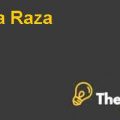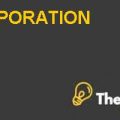
Knowledge
Direct and Indirect Investment
In the direct investment plan, individual can buy or sell shares directly from the company with the help of the broker. Numerous direct investment programs are associated with dividend reinvestment plans, where the organization lets individual use the dividend payments to reinvest, or buy additional shares. With indirect investment, it is the responsibility of the individual investor to maintain his portfolio of investment. The help of following example can explain direct investment.
Suppose Rita, whose age is 35, has savings of $4 million over the past few years. She is considering making an investment of $4 million into the company. She first has to identify the potential broker through which she wants to invest in a share of the company. Rita has to pay only the commission upon the purchase and sale of the shares, and the capital gains tax that has to be paid for the transaction.
On the other hand, the indirect investment plan consists of making an investment in the company with the help of the mutual fund, where the fund manager is responsible for maintaining the portfolio of the investment. The following example can help in explaining the indirect investment.
Suppose Rita, despite investing directly in the shares of the company, she contacted the mutual fund. The mutual fund will now make the investment on her behalf, as well as analyze and manage it. The fund manager of the mutual fund, who is professional in maintaining the portfolio of investment, will act as an agent of Rita, maintaining her portfolio of investment. A fixed percentage of return will be determined, over which annual yield will be paid out. (Direct Vs Indirect Investments, Mutual Funds, n.d.)
Mutual Funds
A mutual fund is a trust that carries the number of savings of investors who share common financial goals. The money collected by the investors is then invested in the capital market instruments such as debentures, stock, and other securities. Through this investment the income earned, and the capital appreciation realized is shared by its component holders in the percentage of units owned by them. A mutual fund is the suitable investment for the ordinary man as it provides the opportunity to invest in a professionally managed basket, diversified securities at much lower cost.
Types of Mutual Funds.
“Open-ended Scheme” or “Open Mutual Funds” are the most common type of funds, which allows a group of investors to invest the funds cumulatively to meet an investment objective. Then the fund manager manages the chosen investment and pooled assets, which create the portfolio of funds. This portfolio is established by the mutual fund company and valued by the outside agent or fund company. An open-ended fund consists of “buying and selling” of shares directly to shareholders.
“Close-Ended Scheme” or “Closed Mutual Funds” are the securities that are most commonly being trade traded over the stock market. A fixed number of stocks are issued in the closed-ended fund in an initial public offering, which are traded on exchanges. Share prices are determined by investor demand, not by the total net asset value. A mutual company or investment dealer will raise funds through underwriting with the specific investment objective of creating a fund. A closed-ended fund consists of “buying and selling” of share in an open market.
“Load Funds" are the subscription fee paid by an investor who buys shares in the mutual fund. When you set the sales charge at the time of purchase, this is known as a premium subscription. By contrast, loads of background represents charges that are assessed when the investor ultimately sells the background.(mutual fund, n.d.)Mutual Funds case solution
Ways of Purchasing Mutual Funds.
The mutual funds can be purchased in various ways.
The first method allows you to purchase mutual funds through the fund companies directly.
Another way of purchasing mutual funds is through a fund "supermarket" offering funds from many different vendors. Many online brokerages that host IRA or regular supermarkets also offer brokerage funds.
The final method for purchasing mutual funds is through a human agent or some financial planners. This route is often less profitable than others - runners will take on extra fees, such as sales commissions, and planners can do the same. If you want professional help, it is probably more cost effective to find a financial planner who charges by the hour and can unearth some good and cheap funds without charge to you.(How to buy mutual fund, n.d.)......................
This is just a sample partial work. Please place the order on the website to get your own originally done Case Solution













